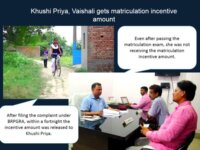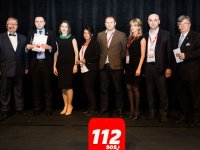For the first time in India, over 100 million citizens have been conferred a legal right to grievance redress. The Bihar Right to Public Grievance Redressal Act also provides a no-wrong door policy (every complaint compulsorily received in any centre in Bihar or digitally and acknowledged) and power parity between citizens and public authority (specially mandated independent, quasi-judicial officers provide a one-stop solution after weighing evidence from both sides).
Innovation Tag: Process Improvement/Simplification
SPID (Sistema Pubblico di Identità Digitale, or Digital Identity System) is a solution for accessing public administration online services through once-only digital identity (user & password) generated by private Identity Providers. It can be used from any device (PC, tablet & smartphone) by citizens. SPID aims to improve the relationship between citizens & the public administration by expanding the digital approach in using public services.
SKYrooms is a network of spaces that enable effective collaboration across sectors to inspire breakthrough innovation. The prototype, which overlooks Big Ben, was developed with IDEO and the Royal College of Art. It celebrates both historic architecture and cutting edge technology, using design to signal new ways of working, new permissions and embed an innovation culture.
High transaction costs, long bureaucracy, and a weak controlling system create bad image of public services, especially in terms of forestry business. One Timber One ID (SIPUHH) is an innovation as a tool in controlling forestry business. It provides a system in which any timber traded has an ID, so its origin and legality can be identified. It promotes greater accountability on the timber industry to respect forestry law.
The Better Government Movement (BGM), housed on Innovation.gov, builds a 21st century, delivery-driven government. BGM creates an inclusive space where public servants can grow their creative capacity and learn new tools, approaches, and mindsets to jumpstart innovation. This is in service of solving government-wide problems and affecting positive change within agencies and government writ large.
The sick leave e-certificate was introduced to reduce the administrative burden related to the processing of sick-leave paper certificates, both for institutions and inhabitants, as well to provide complete data on issued certificates in Latvia. Since 2018 sick-leave certificate are issued only electronically in the national E-health system which provides processing and circulation of certificates electronically among health care institutions, patients, employees and social insurance…
The Australian Government piloted and developed MyService, a simple, intuitive and innovative digital solution significantly improving veterans' experience when accessing Health Care, Compensation, Income Support and Commemorations for war veterans, members of the Australian Defence Force, their dependants and certain members of the Australian Federal Police. It empowers veterans by helping them get the assistance they need with less stress and increased trust in the outcomes.
This project presents the new approach in service delivery, through which we enabled deaf and hard of hearing persons to have an access to the most essential services, such as emergency call and civil registry services. Tireless engagement of deaf community in service design resulted in elaboration of user centered and People with Disabilities-tailored services, enabling beneficiaries to contact emergency services using a text-based or a video calling system and squire necessary civil documents…
The Trinidad and Tobago Diamond Standard Certification Programme (TTDS) was launched in 2013 as the National Standard for excellence in public service delivery. The programme certifies government services that demonstrate strong commitment to meeting citizen needs.
The system in the Kolding Municipality in charge of providing medical benefits underwent a comprehensive design driven innovation process aiming for better and more efficient service in 2015. Min Plan gives citizens an intuitive understanding of the medical benefit system, just as it empowers them to take responsibility for their own case, making it a successful journey through the system. The results currently show a 38% reduction in complains from citizens and 3 million euro saved a year.


